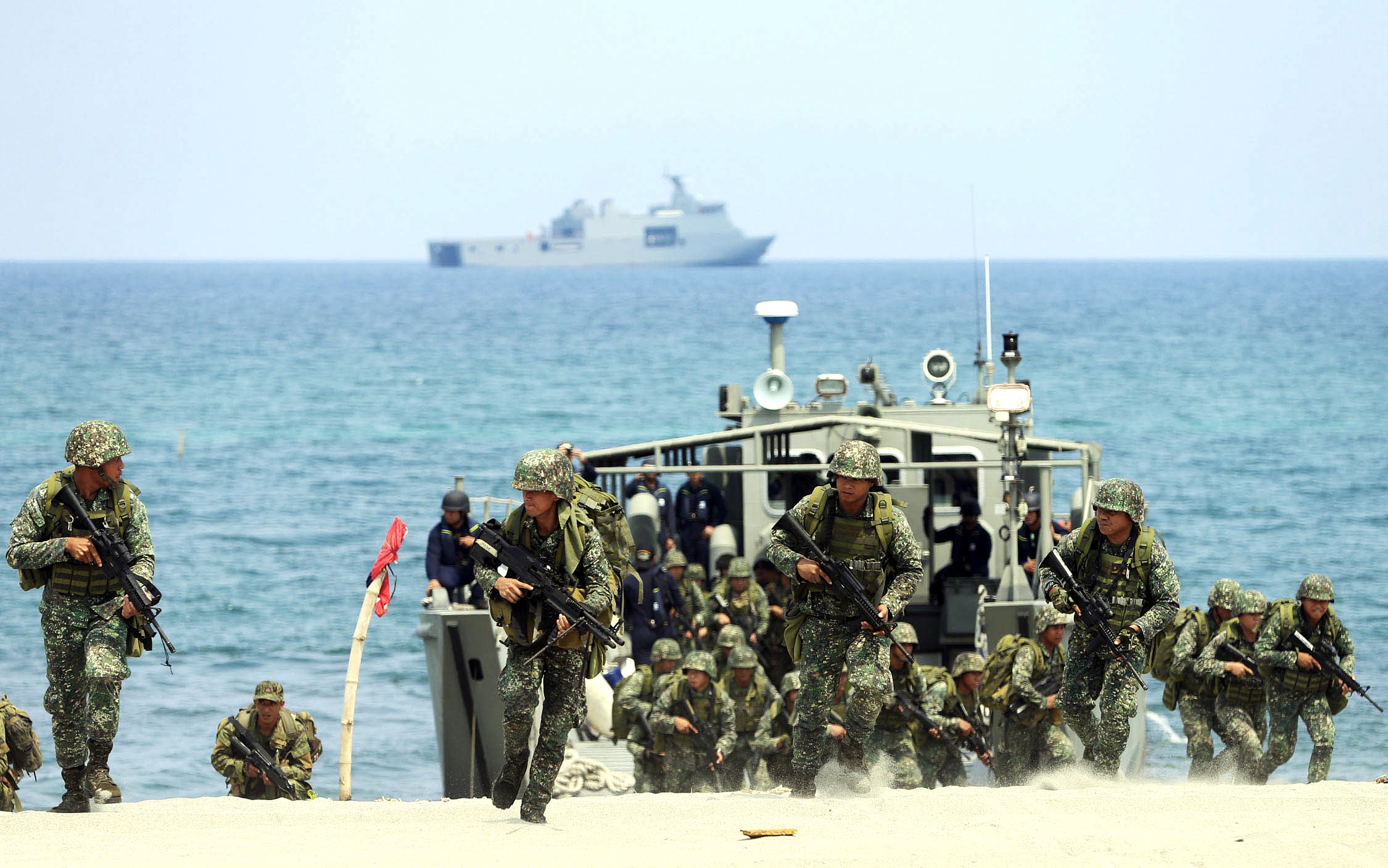
TRAINING TOGETHER American and Filipino soldiers simulate a raid during the joint US-Philippine military exercise Balikatan at the Naval Training Exercise Command in San Antonio, Zambales province, in 2018. INQUIRER FILE PHOTO
MANILA, Philippines — A more complex, expansive and evolved “Balikatan” (shoulder-to-shoulder) exercise kicks off on Monday which would see more countries and local security forces taking part as observers.
The 39th iteration of the annual war games between the United States military and the Armed Forces of the Philippines is expected to be joined by over 16,000 personnel including contingents from the Australian Defence Force, the French Navy and the Philippine Coast Guard.
READ: Philippine Coast Guard to send 6 vessels to ‘Balikatan’ drills
As part of the AFP’s international observer program, 14 countries including Britain, Brunei, Canada, France, Germany, India, Indonesia, Japan, Malaysia, New Zealand, the Republic of Korea, Singapore, Thailand and Vietnam would observe the exercises which formally begins on Monday and ends on May 10.
Maj. Gen. Bernard Banac, Philippine National Police Special Action Force director, said 156 members of his unit would take part as observers in the exercises, which he said would give the police elite force an opportunity to learn and gain experience on all-domain (sea, air, land) operations, command control and cybersecurity, he said.
AFP spokesperson Col. Francel Margareth Padilla said on Sunday: “This Balikatan exercise is distinctive due to its scale and evolving nature, adapting to contemporary security challenges.”
“Every Balikatan is increasingly complex than the last. It has evolved from the tactical to the operational level of war,” she said, adding that “We aim to enhance interoperability, strengthen alliances, and deepen regional security cooperation.”
‘All domains’
“This Balikatan exercise is an annual event aimed at strengthening defense capabilities and alliances. While we remain vigilant in the face of regional challenges, the exercise is not explicitly tied to any particular country’s actions,” Padilla said further.
The participating troops would execute complex all-domain missions involving maritime security, sensing and targeting, air and missile defense, dynamic missile strikes, cyberdefense and information operations.
Lt. Gen. William Jurney, commander of the US Marine Corps Pacific and US exercise director for Balikatan, said in a statement, “Each year, we work closely with AFP senior leaders to make Balikatan more challenging. This year, we’ve increased the scope, scale, and complexity across all domains.”
“We’re building military readiness across the full range of combined and joint operations. It’s our most expansive Balikatan yet,” he said.
Balikatan would be composed of three main events: field training exercises (FTX); command-and-control exercises (C2X); and humanitarian civic assistance (HCA) activities.
FTX would include exercises in protecting key terrain in Luzon and Palawan; rapidly moving long-range and precision strike capabilities in simulated threats; tracking simulated air threats and targeting them with multiple air and missile defense systems; and integrating multilateral air and land platforms to increase awareness of the maritime security situation.
The FTX would showcase the deployment and use of cutting-edge military assets such as the High Mobility Artillery Rocket System (Himars) Rapid Infiltration, the Integrated Air and Missile Defense, and various unmanned aerial systems.
C2X would include a cyberdefense exercise aimed at strengthening bilateral defense capabilities that protect critical military and civilian information infrastructure while the HCA, which began in March, involves the construction of school buildings in Ilocos Norte and Cagayan and health centers in La Union and Palawan.
The exercises would be held in various locations under the Northern Luzon Command, Western Command and Southern Luzon Command.